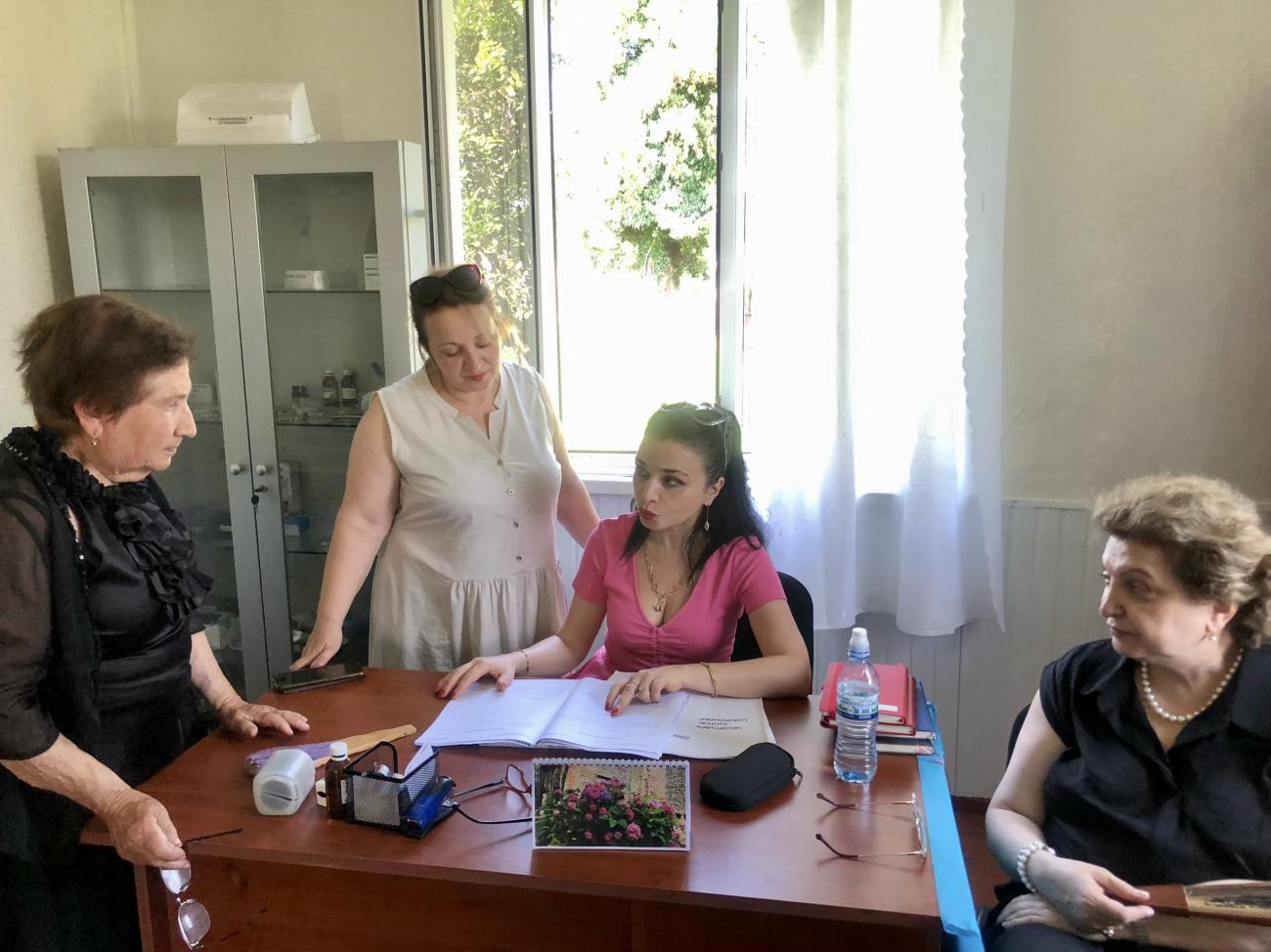Family medicine needs strengthening, says pioneering PHC doctor in Georgia

For her outstanding career in PHC, Nato was given the 5-star award for family doctors by the World Organization of Family Doctors (WONCA) Europe in 2024
A neurologist by training, Dr Nato Shengelia now works as a primary health care (PHC) doctor in Georgia. She has received international recognition for her work as a passionate advocate for family medicine in the country. Dr Shengelia discovered her passion for family medicine after graduating from Tbilisi State Medical University, once she started actively engaging with patients. She was drawn to the all-encompassing nature of PHC, which allows physicians to take a comprehensive view of patients’ health throughout their lifetimes. She shares her insights on how to make PHC a more attractive career choice.
“Georgia’s PHC system is currently weak, wages are meagre, which makes it unattractive for students to make a career in primary care and most people prefer to self-refer directly to specialists due to the lack of trust in family medicine,” she explains. However, Nato notes that the current reform by the Ministry of Internally Displaced Persons from the Occupied Territories, Labour, Health and Social Affairs aims to address these challenges.
In the framework of the ongoing PHC reform, the Ministry plans to add a social worker, a nurse-midwife and a psychologist to nursing teams in remote areas. Up to 40% of Georgia’s population live in rural areas (World Bank, 2022) and it is one of the most mountainous countries in Europe. Ensuring access to health services is difficult in those hard-to-reach areas, and it is hard to recruit and retain health workers there. “The lack of nurses is particularly acute. In these remote areas, strengthening PHC services is an opportunity to deliver equal and high-quality primary health care for all,” says Nato.
Promoting trust
Prevention is key in PHC. Early diagnosis of disease decreases morbidity and mortality. “This includes the promotion of a healthy lifestyle and screenings, with a special focus on noncommunicable diseases and their risk factors like tobacco,” says Nato. It involves, “identifying the health condition, managing it and, if necessary, timely referral to the specialist,” she explains.
Nato has been involved in various WHO projects, such as support and supervision for PHC facilities delivering virtual outpatient treatment during the COVID-19 pandemic, as well as improving management of diabetes and hypertension, setting telemedicine standards in PHC facilities and many others. All of which, she says, helped strengthen PHC in Georgia and deliver essential services.
Weak PHC also results in a high financial burden for the population. Due to the unpopularity of family doctors, many patients prefer paying for a specialist. This results in high out-of-pocket payments and increased financial burden, which, in Georgia, is one of the highest among the countries of the WHO European Region. “More needs to be done to restore trust in family doctors and promote and popularize primary health care among the Georgian population,” Nato says.
For her outstanding career in PHC, Nato was given the 5-star award for family doctors by the World Organization of Family Doctors (WONCA) Europe in 2024. This international recognition adds to her local success, and her ability to achieve this within Georgia’s challenging environment serves as an inspiration for future doctors. It demonstrates how improving access to quality care through PHC benefits patients and contributes to the sustainability of the entire health system.

